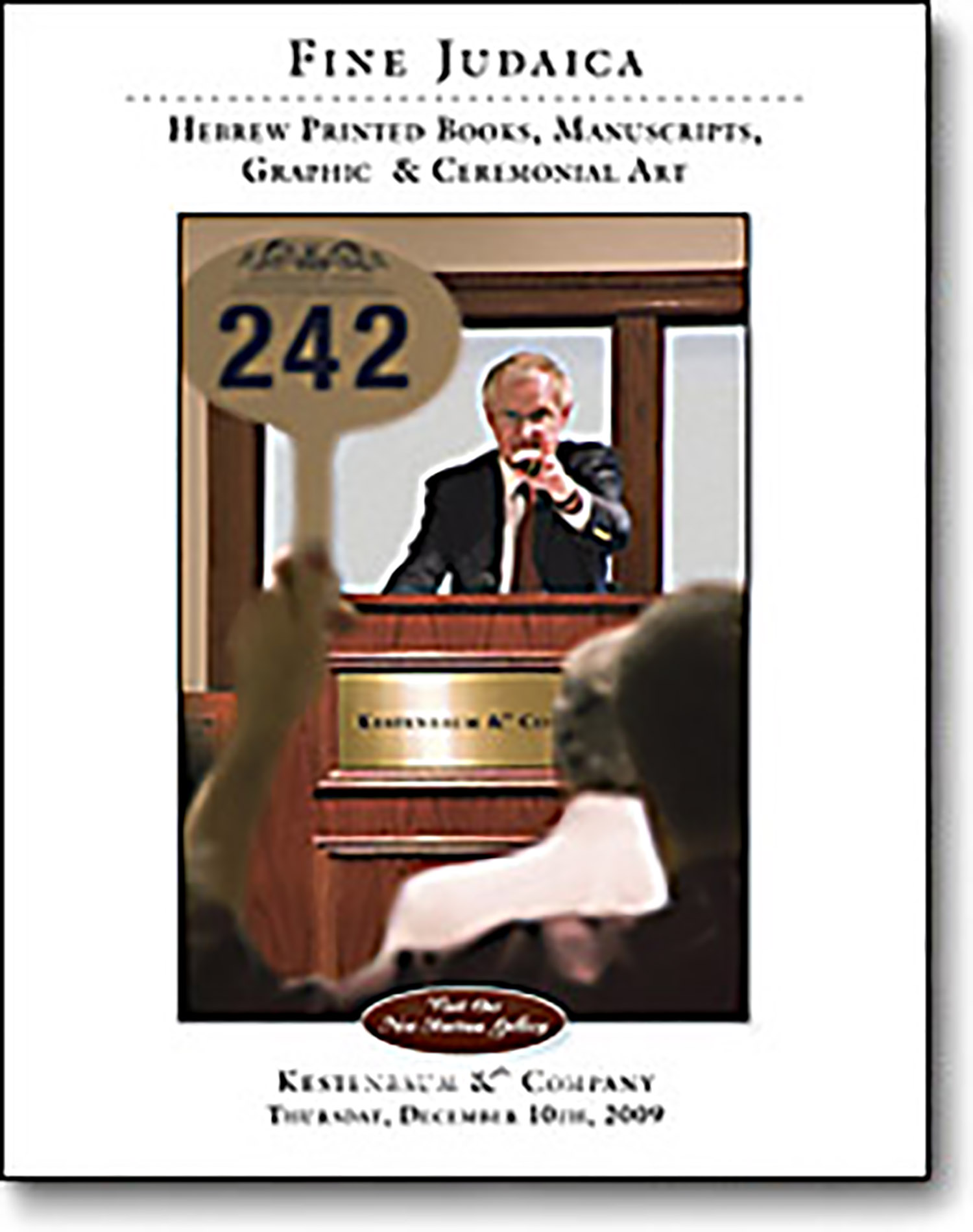BRODY, CHAIM (HEINRICH)

AUCTION 47 |
Thursday, December 10th,
2009 at 1:00
Fine Judaica: Hebrew Printed Books, Manuscripts, Graphic & Ceremonial Art
Lot 73
BRODY, CHAIM (HEINRICH)
Prague: Dr. J. Flesch 1923
Est: $200 - $300
Rare lithographed pamphlet, published in a limited edition, seeking to justify Brody's ruling against the opposition of another (unnamed) rabbi.
The circumstance that prompted the halachic question was the fact that Brody was not elected by direct vote but rather by "proportional vote" (or, "electoral vote"). Brody explains that the Orthodox in Prague were far outnumbered by the other factions, thus only by assigning a certain number of votes to each party was it possible for the Orthodox party to make some political headway. However after the election, another rabbi objected that the elections were in fact in violation of Torah law, whereby a strict majory rules. The two Chief Rabbis of Eretz Israel upheld Brody's contention by asserting that the "proportional" system dates back to Moses' time, when each of the twelve tribes of Israel was assigned six seats on the protypical Sanhedrin.
Although Chaim Brody’s (1868-1942) claim to fame was as a researcher of medieval Hebrew poetry, it is evident form this responsum that he was a first-rate halachic scholar as well. Brody was the grandson of the Hungarian authority Rabbi Solomon Ganzfried (author “Kitzur Shulchan Aruch”) and studied in his youth in the Pressburg Yeshiva. From 1912-1930, he served as the Chief Rabbi of Prague. EJ, Vol. IV, cols. 1399-1400.
